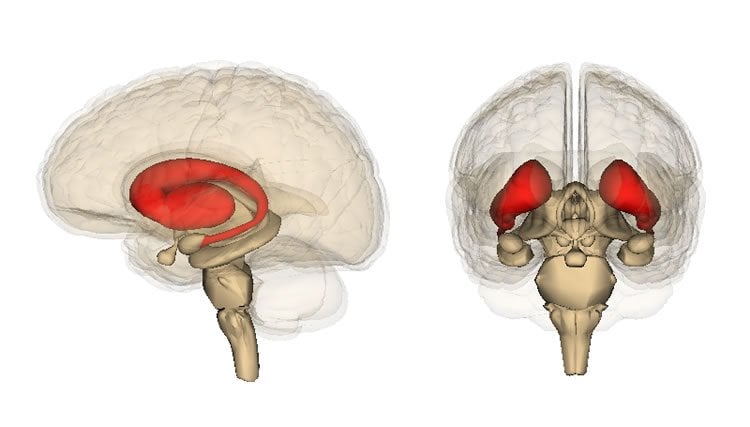Summary: A new study provides insight into how overconfidence can lead to poor decision making.
Source: Monash University.
The link between overconfidence and poor decision making is under the spotlight in an international study by scientists from Monash University and the Max Planck Institute for Human Cognitive and Brain Sciences in Leipzig.
People vary widely in their awareness of what they do and don’t know, or metacognitive ability, and in general are too confident when evaluating their performance. This often leads to poor decision making with potentially disastrous consequences, according to the report’s authors.
The team has published a study in the journal Social,Cognitive and Affective Neuroscience which provides some insight into how overconfidence can lead to poor decision making.
The authors include an international group of scientists at the Department of Social Neuroscience at the Max Planck Institute headed by Professor Tania Singer in collaboration with Dr Pascal Molenberghs from the Monash Institute of Cognitive and Clinical Neurosciences and Fynn-Mathis Trautwein, Dr. Anne Böckler and Dr. Philipp Kanske from the Max Planck institute team.
They analysed data from the ReSource Project, which is a unique, large scale study on Eastern and Western methods of mental training performed at the Max Planck Institute. In the context of a social cognition task performed in the brain scanner, the volunteers watched a video of a person telling a story and then had to answer a difficult question about what the person said.
Subsequently, people indicated how confident they felt their response was correct. The researchers then measured how good people were in evaluating their own accuracy; a process called metacognition.

“The more confident people were about their performance, the higher the activation in brain areas such as the striatum, an area often associated with reward processing,” first author Dr Molenberghs said.
“However, too much confidence was associated with lower metacognitive ability,” co-first author Mr Trautwein added.
When combined, the results indicate that although being confident entails a reward-like component, it can lead to overconfidence which in turn can undermine decision making.
Source: Monash University
Image Source: This NeuroscienceNews.com image is credited to Life Science Databases and is licensed CC BY SA 2.1 JP.
Original Research: Abstract for “Neural correlates of metacognitive ability and of feeling confident: a large-scale fMRI study” by Pascal Molenberghs, Fynn-Mathis Trautwein, Anne Böckler, Tania Singer, and Philipp Kanske in Social,Cognitive and Affective Neuroscience. Published online July 21 2016 doi:10.1093/scan/nsw093
[cbtabs][cbtab title=”MLA”]Monash University. “How Overconfidence Can Lead to Poor Decision Marking.” NeuroscienceNews. NeuroscienceNews, 15 August 2016.
<https://neurosciencenews.com/overconfidence-decision-making-4841/>.[/cbtab][cbtab title=”APA”]Monash University. (2016, August 15). How Overconfidence Can Lead to Poor Decision Marking. NeuroscienceNews. Retrieved August 15, 2016 from https://neurosciencenews.com/overconfidence-decision-making-4841/[/cbtab][cbtab title=”Chicago”]Monash University. “How Overconfidence Can Lead to Poor Decision Marking.” https://neurosciencenews.com/overconfidence-decision-making-4841/ (accessed August 15, 2016).[/cbtab][/cbtabs]
Abstract
Neural correlates of metacognitive ability and of feeling confident: a large-scale fMRI study
One important aspect of metacognition is the ability to accurately evaluate one’s performance. People vary widely in their metacognitive ability and in general are too confident when evaluating their performance. This often leads to poor decision making with potentially disastrous consequences. To further our understanding of the neural underpinnings of these processes, this fMRI study investigated inter-individual differences in metacognitive ability and effects of trial-by-trial variation in subjective feelings of confidence when making metacognitive assessments. Participants (N = 308) evaluated their performance in a high-level social and cognitive reasoning task. The results showed that higher metacognitive accuracy was associated with a decrease in activation in the anterior medial prefrontal cortex, an area previously linked to metacognition on perception and memory. Moreover, the feeling of confidence about one’s choices was associated with an increase of activation in reward, memory and motor related areas including bilateral striatum and hippocampus, while less confidence was associated with activation in areas linked with negative affect and uncertainty, including dorsomedial prefrontal and bilateral orbitofrontal cortex. This might indicate that positive affect is related to higher confidence thereby biasing metacognitive decisions towards overconfidence. In support, behavioural analyses revealed that increased confidence was associated with lower metacognitive accuracy.
“Neural correlates of metacognitive ability and of feeling confident: a large-scale fMRI study” by Pascal Molenberghs, Fynn-Mathis Trautwein, Anne Böckler, Tania Singer, and Philipp Kanske in Social,Cognitive and Affective Neuroscience. Published online July 21 2016 doi:10.1093/scan/nsw093






